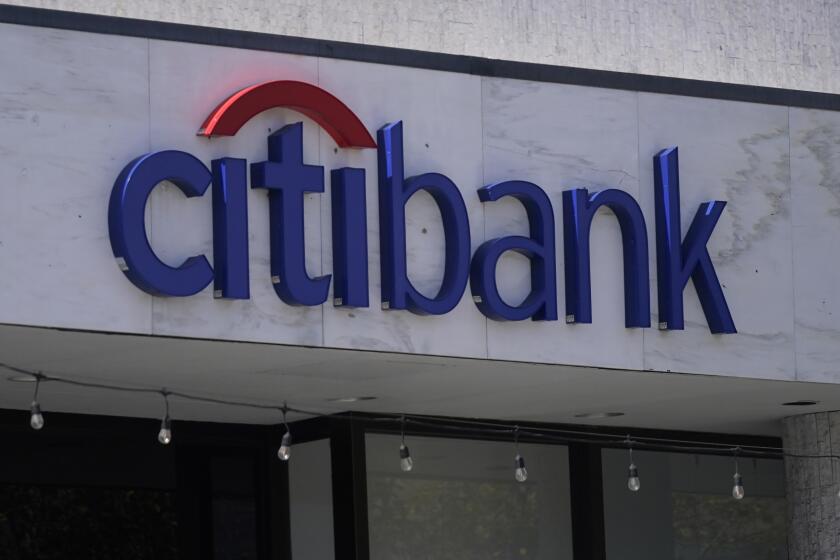Wall Street edges lower as four-week winning streak cools off

- Share via
The major U.S. stock indexes ended slightly lower Monday as Wall Street looks ahead to updates on inflation and how American consumers are feeling about the economy.
The Standard & Poor’s 500 slipped 0.2%. The benchmark index is coming off a holiday-shortened week in the U.S. and its fourth-straight winning week. The Dow Jones industrial average also closed 0.2% lower, while the Nasdaq composite dropped 0.1%.
All told, the S&P 500 fell 8.91 points to 4,550.43. The Dow slipped 56.68 points to 35,333.47, and the Nasdaq dropped 9.83 points to 14,241.02.
Healthcare, communication services and industrial stocks were among the biggest drags on the market. Eli Lilly & Co. fell 1.6%, Meta Platforms slid 1% and Union Pacific closed 2% lower.
Technology stocks and companies that rely on consumer spending were bright spots. Chipmaker Nvidia rose 1% and Amazon.com gained 0.7%.
Shopify climbed 4.9% after the cloud-based commerce company announced a Black Friday record for worldwide sales of $4.1 billion from its merchants.
A class-action lawsuit seeks to punish Citibank for arbitrarily denying the applications and closing the accounts of people with Armenian-sounding last names under the aegis of fraud prevention.
In the bond market, Treasury yields fell broadly. The yield on the 10-year Treasury, which influences interest rates on mortgages and other loans, fell to 4.39% from 4.47%. The yield on the two-year Treasury slid to 4.88% from 4.95%.
Stocks closed mostly lower in Asia and Europe.
Investors have grown cautiously optimistic that inflation has cooled enough for the Federal Reserve to put a definitive end to its aggressive interest rate increases. Meanwhile, the broader economy has remained strong enough in the face of rising interest rates and inflation to avoid a recession.
Markets have been rallying on that sentiment, and the S&P 500 remains on track to close out November as its best month of the year. Investors will get more updates on the economy this week to help either confirm or soften that sentiment.
On Tuesday the Conference Board will issue its latest report on consumer confidence, which has remained solid throughout the year. Economists polled by FactSet expect another solid reading for the October report.
The price of U.S. crude oil fell 0.9% Monday, remaining mostly stable ahead of OPEC’s meeting Thursday. The cartel has maintained tight supplies, though prices have been falling over the last month. Lower energy prices could further ease inflation’s squeeze on consumers and help fuel economic growth.
On Thursday, Wall Street will be closely watching the government’s October data on the Federal Reserve’s preferred measure of inflation. Economists expect that measure to continue easing, as it has been since the middle of 2022.
A recent uptick in scams targeting older adults has seniors wondering who’s really calling them. Here’s what to watch out for.
Investors have put the latest round of surprisingly good corporate earnings behind them after several disappointing quarters. The main focus through the end of the year will be on the Fed and what it does next.
The Fed has been holding its benchmark interest rate steady at a range of 5.25% to 5.50% since its last quarter-point hike at its July meeting. Wall Street is betting that the rate will remain stable at the central bank’s December meeting and into early 2024, according to CME’s FedWatch tool.
Investors are increasingly leaning toward the Fed cutting rates in the middle of 2024 and easing it off its highest level in two decades. The central bank, though, has said it will make upcoming decisions based on the latest economic reports in its ongoing effort to cool inflation without slowing economic growth to the point of causing a recession.
More to Read
Inside the business of entertainment
The Wide Shot brings you news, analysis and insights on everything from streaming wars to production — and what it all means for the future.
You may occasionally receive promotional content from the Los Angeles Times.












